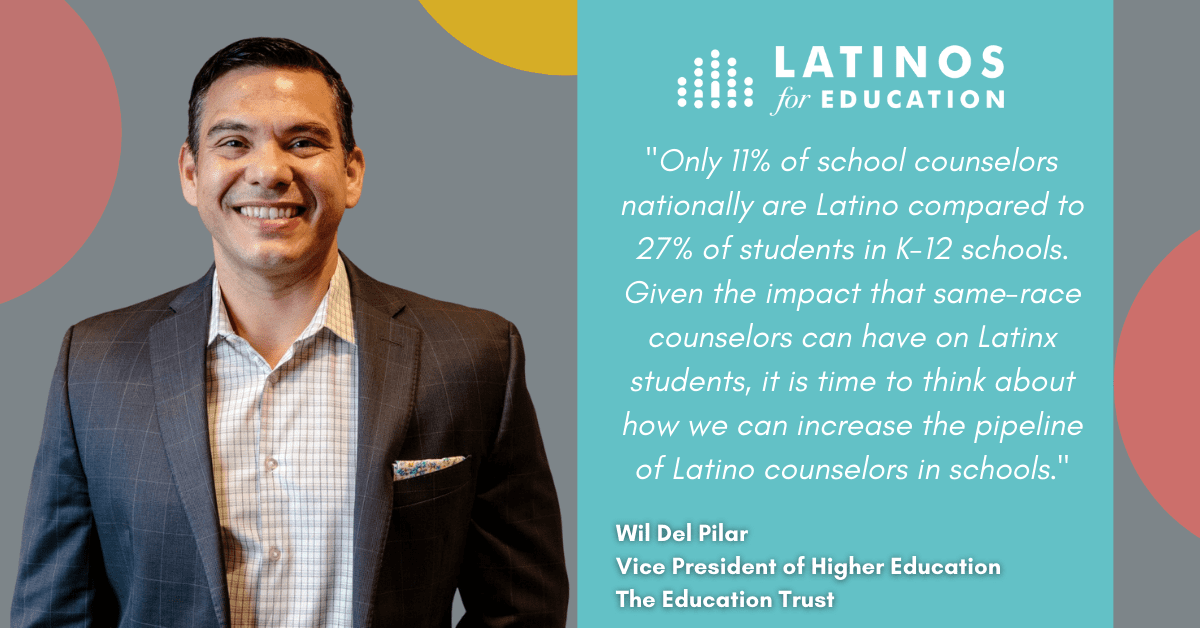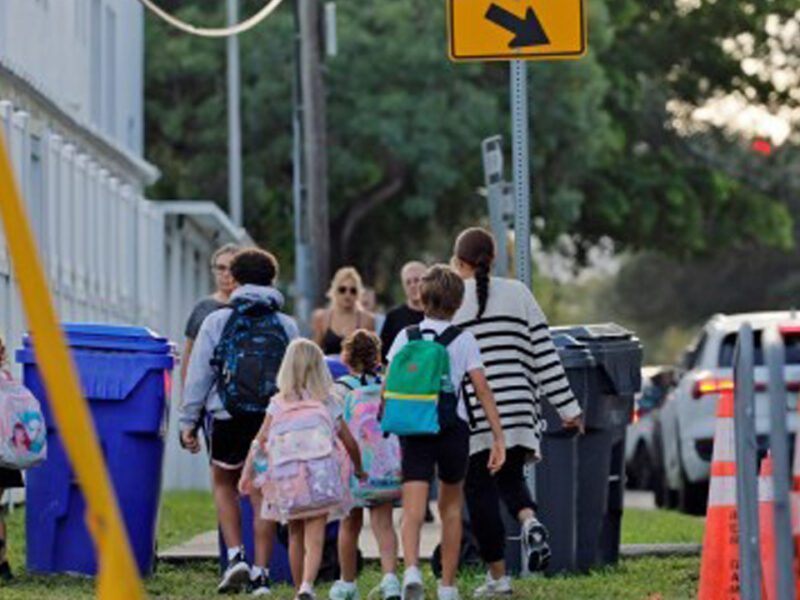Counselors Matter: Why Latinx Counselors are Crucial to Student Attainment
Latinos for Education | by Wil del Pilar
When I was a high school student, I remember going to see my school counselor and asking about preparing for college and taking the SAT test, and I recall that he told me, “You don’t need to worry about that” and “If you plan to go to college, you could go to a community college.” He enrolled me in a work experience course that released me from school early and didn’t prepare me for college, life or a career. Not surprisingly, I didn’t go to college right after high school. While I eventually found my way, I came to realize how school counselors can be the difference in the pathways students decide to take.
A recent report from the U.S. Census found that 16.4% of Latino adults 25 and older have a bachelor’s degree or higher. This is half of what it is for White adults (33.5%). If this educational attainment gap is to close, then school counselors will play an important role in providing Latino students with information and guidance on post-high school options.
The role of school counselors in creating opportunity for students can’t be understated. My experience in high school, sadly, is not unique. Research has found that school counselors exhibit bias in recommending students for advanced coursework. Another report from The Education Trust confirms that Latino students are not fairly represented in advanced coursework opportunities and that schools are denying Latino students access to these courses, despite the fact that Latino students are successful in these advanced coursework when given the opportunity. Advanced placement courses can make all the difference in getting students “college ready” and inspiring them to believe that college is possible.
Recent research also found that effective school counselors increase a student’s likelihood of graduating high school, attending college, persisting in college and ultimately graduating. The likelihood of these outcomes become even greater when students are assigned to a “same-race” counselor. Non-white students were nearly 4 times more likely to attend college and nearly 3 times more likely to persist in college if they have a “same-race” counselor.
Unfortunately, only 11% of school counselors nationally are Latino compared to 27% of students in K-12 schools. Given the impact that same-race counselors can have on Latinx students, it is time to think about how we can increase the pipeline of Latino counselors in schools.
Sadly, not only is there a scarcity of Latino counselors, but there is a scarcity of mental health support for students, too. We have not done enough to invest in our guidance counselors so that they can prioritize the mental health needs of students. Nationally, the student to counselor ratio is 464 to 1, despite recommendations from the American School Counselor Association to have 250 students to every 1 counselor. In the United States, there are 8 million students without access to a school counselor. Worse still, 1.7 million of those students attend a school with police and no school counselor. When we prioritize policing over student outcomes, we’re sending a message that college isn’t a place for them.
The pandemic has already exacerbated the college attainment gap, as Latino enrollment among first-time college students fell for the first time by nearly 20 percent of pre-COVID numbers. If we are going to recover from the impacts of remote learning and lead toward a brighter future for our students, then we need to invest in effective counselors that can place our students in advanced coursework, provide them with resources for mental wellness, and support them in their path to college.
This means that at the federal level we should prioritize counselors under student loan forgiveness. Currently counselors are not eligible under the Federal Stafford (FFEL and Direct Loan) Programs. This oversight burdens Latinx counselors with the debt but not the benefit of serving in public schools. We should also extend Teach Grants to candidates who are enrolled in school counselor programs and become school counselors, and invest in school counselor pipeline/programs at Hispanic Serving Institutions (HSIs).
We need counselors who are dedicated to closing opportunity gaps and inspiring Latino students to achieve their educational dreams.






